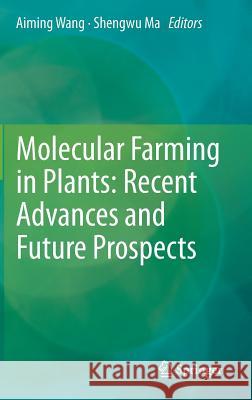Molecular Farming in Plants: Recent Advances and Future Prospects » książka
Molecular Farming in Plants: Recent Advances and Future Prospects
ISBN-13: 9789400722163 / Angielski / Twarda / 2011 / 280 str.
Molecular Farming in Plants: Recent Advances and Future Prospects
ISBN-13: 9789400722163 / Angielski / Twarda / 2011 / 280 str.
(netto: 383,36 VAT: 5%)
Najniższa cena z 30 dni: 385,52
ok. 16-18 dni roboczych.
Darmowa dostawa!
Molecular farming in plants is a relatively young subject of sciences. As plants can offer an inexpensive and convenient platform for the large-scale production of recombinant proteins with various functions, the driven force from the giant market for recombinant protein pharmaceuticals and industrial enzymes makes this subject grow and advance very quickly. To summarize recent advances, current challenges and future directions in molecular farming, international authorities were invited to write this book for researchers, teachers and students who are interested in this subject. This book, with the focus on the most advanced cutting-edge breakthroughs, covers all the essential aspects of the field of molecular farming in plants: from expression technologies to downstream processing, from products to safety issues, and from current advances and holdups to future developments.
Since the first recombinant plant-derived pharmaceutical protein (PDP), i.e., human serum albumin, was produced in transgenic tobacco and potato plants in 1990, molecular farming in plants has emerged as a new subject of sciences. The plant system has the potential to provide virtually unlimited quantities of these bio-products at low costs, which is impossible for any other systems. plants have been vigorously tested for the production of numerous bio-products including vaccines, therapeutic proteins, industrial enzymes and proteins with other functions. The urgent demand from the rapidly growing market has also facilitated research & development in the downstream processing of plant-derived recombinant proteins. Various breakthroughs resulting from basic to practical research have lead to the rapid advance of this subject. This book was written by international authorities and was anticipated to help biotechnologists, scholars, professors, teachers and students in the field with a comprehensive state-of-the-art of overview of the subject. The book consists of 12 chapters, elucidating the principles of molecular farming, summarizing the most recent advances, revealing current challenges and pointing out future research directions.











